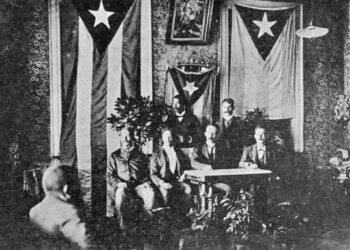Carlos Acosta has debuted as a fiction writer with Pig’s Foot, a novel that charts, they say, the history of Cuba from the nineteenth century to today, and has been included on the Waterstones 11 annual list of the books most promising debut novels in the United Kingdom.
Me, with my mean mind, cannot help but suspect a perfidious ramble. Acosta receive literary awards solely because he is, or has been, an extraordinary dancer. But it would, in any case, another lie of the awards and the market, not the author’s. Acosta does not deserve that. He doesn’t deserve that we put such stigma on advance on his role as a writer, because the vigorous and smiling mulatto is one of the most sincere and necessary artists in today’s Cuba.
If things go as expected, Acosta perhaps will be able to restore the ISA dance center and lead, in the not too far away future, the paths of the National Ballet as effectively and with the same spontaneity he use to seduce the most diverse audiences throughout the world, from London to New York, which earned him applause, respect, fair valuations, and prizes awards like the Olivier.
Cubans have not even read his autobiography, but, eventually, we could reach a tacit agreement. Read and judge his books, as we judge Ingress violins, as an entertainment. Corroborate how far, what risks he assumed, but without going over, something that Acosta itself, wise as he is, has made clear.“I’m a dancer. I’m not going to pretend to be a writer. I mean, I can maybe tell a story for you to have fun, and slide through this story and these characters and this world I’ve created. But I’m never going to be Gabriel Garcia Marquez or people who do something to push the boundaries of literature.”
Acosta, precisely because it has made it, knows that excelling in arts is extremely difficult, that pushing the boundaries of ballet, visual arts or music, requires dedication, a strange energy, an inexplicable sagacity, and that this drive can only be achieved when you dance, paint or compose from the last table of helplessness.
We should read it out of curiosity, to see how well, that master of jumps and spins, fights his duel with the transience of words. If we accept his gauzy tone, we will be satisfied with the experience. Because, “Pig’s Foot” will have a transparent tone. Acosta hardly falsifies an accent, projects a style that has, or intends to achieve a category that he does not own as a writer. In fact, Acosta said he started for the title, a method that no renowned author uses. Bone and flesh narrators start with a character, a plot, a vague detail, the internal structure, either a thesis, which then he will remove or forget with methodical skill, but never by the title.
Acosta, frank, began where his inexperience told himwed. Hence Pig’s Foot should be at least entertaining. Because it is a novel written by a dancer, not a dancer turned writer, but a dancer who has incorporated natural unconsciousness and perfect executions and therefore everything he does is under that influence and disposicion.
The day I opened a book by Amaury Perez, I had to close it, scared. Amaury tries to be a writer, not a songwriter, so he writes so poorly. When these skills or side wishes acquire an inadequate plane, it happens what happened to Dayron Robles. They wanted to sell him as a reader; they shouted from rooftops praising such a natural act and did not realize that that contained a malicious thought. That is, Robles was a sportsman, and as an athlete, always seemed so gross, his reading seemed the ultimate merit. Well, there you have it. Robles read so much that he ran into Adam Smith, David Ricardo or something of Marxism, and understood that he was not being given his due, that is, that the surplus of his work had evaporated along the way.
He has now retired and perhaps, who knows, he’d be devoted to literature. If he is going to write, I hope he does as cleanly as he passed hurdles, and leaves aside that intellectual pose with a book in hand, that so many times the wrong camera took.
Acosta, meanwhile, has no plans to continue writing. His one year old does not give him time to sleep, there is no time to write, and writing a book that says something is a very demanding task. As it performing Spartacus is. Or running the 110 meter hurdles under thirteen seconds.









